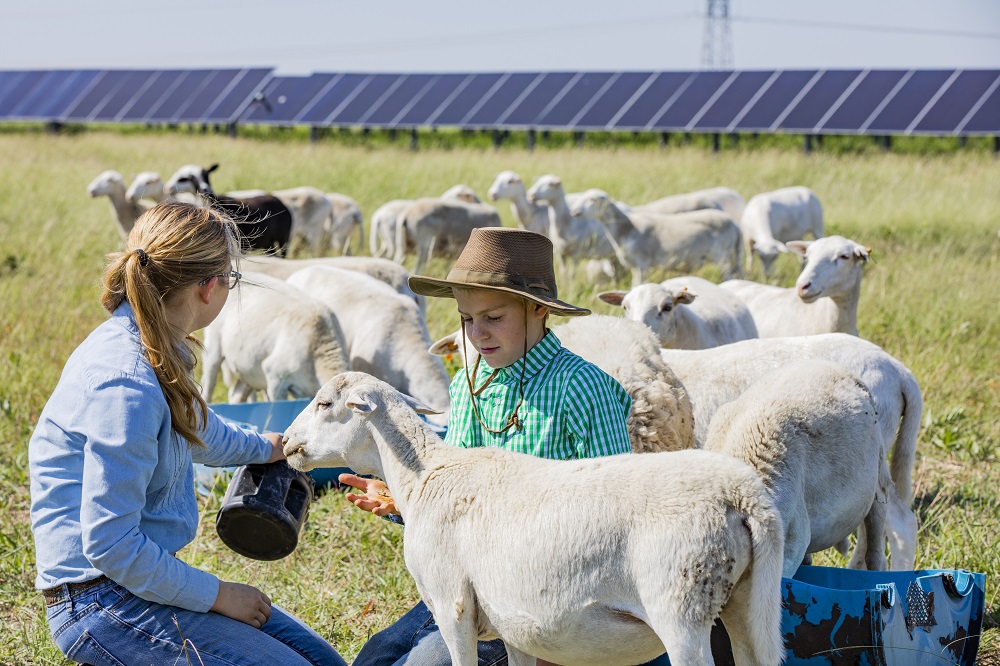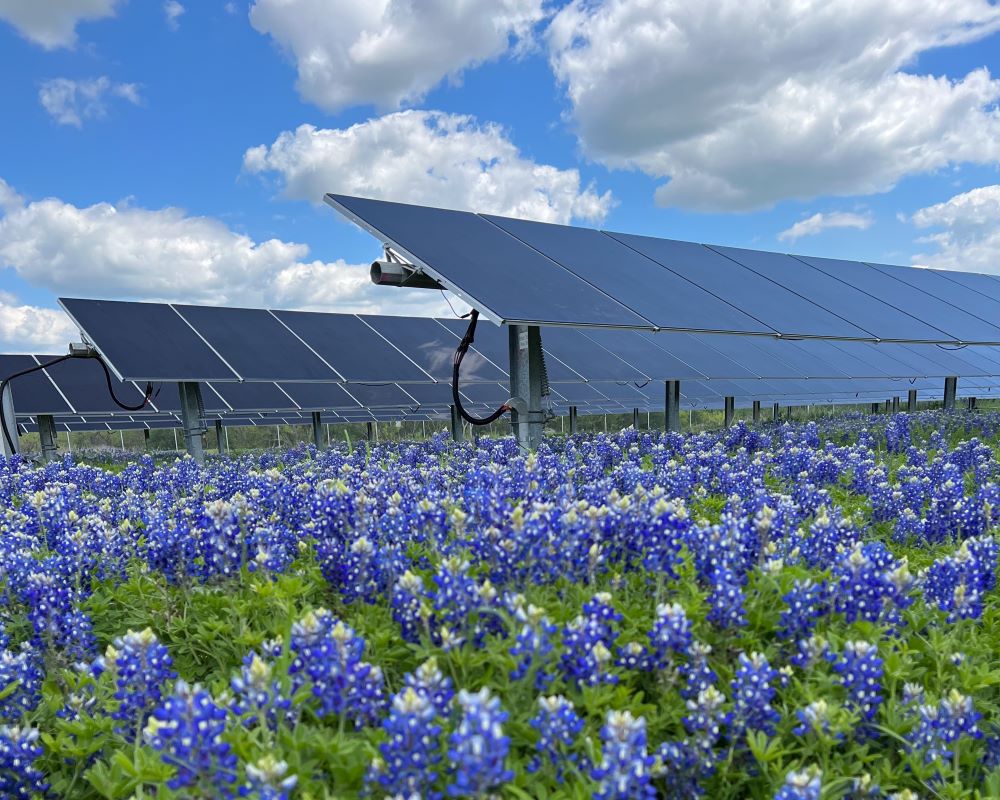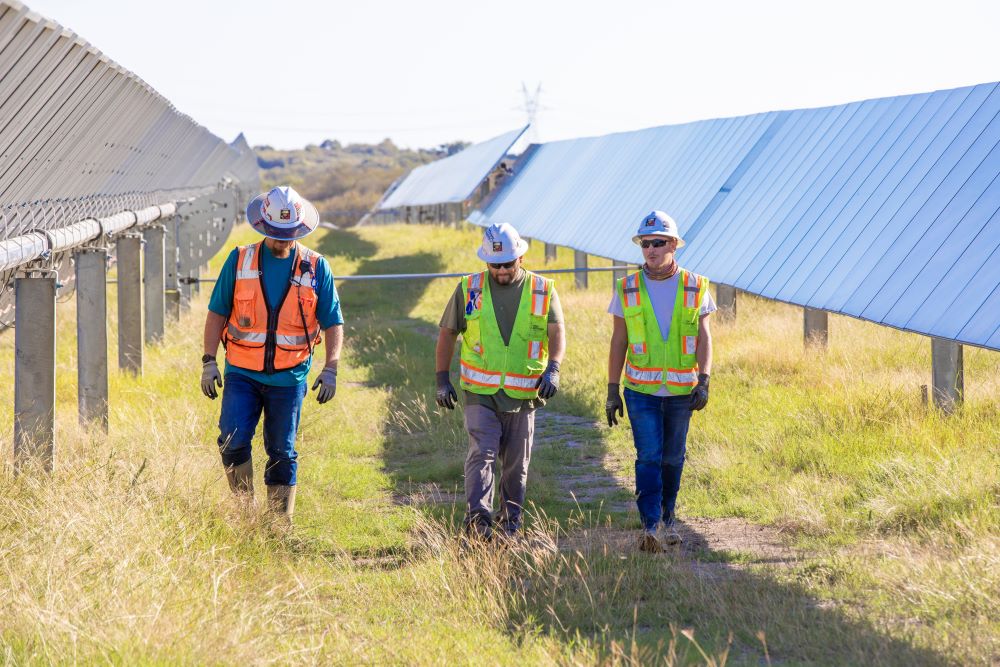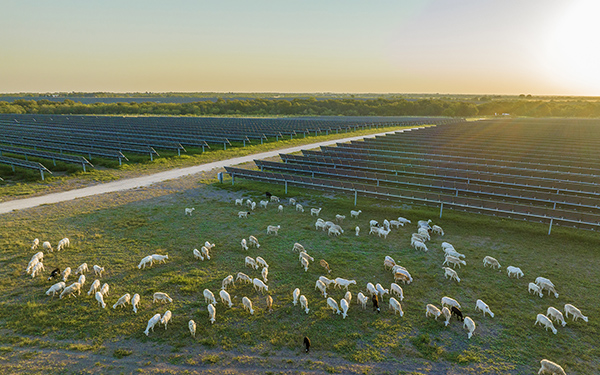Starr Solar | 163MW in Texas
About the Starr solar project
Lightsource bp’s 163MW Starr solar farm has reached commercial operation in Starr County, Texas. The privately funded $230 million renewable energy project delivers affordable electricity into the local grid, supporting Texas’ energy independence and energy security.

163MWdc
/136MWac of renewable energy
200
jobs created during construction, supporting domestic supply chains
29,000 homes
powered with renewable energy (equivalent)
Site selection & preliminary design
Stakeholder outreach
Permitting & environmental studies
Land management & biodiversity planning
Final engineering, financing & construction
Operation & maintenance
Decommissioning & recycling
Community dialogue – we want to be a good neighbor
Lightsource bp is dedicated to supporting communities that are home to our solar projects across America. We have a Community Relations team that works closely with our neighbors to maximize the positive social impacts of our projects.
To connect with a Community Relations Manager please email USCommunityRelations@lightsourcebp.com.
If you are a member of the media, please visit our Press Center.

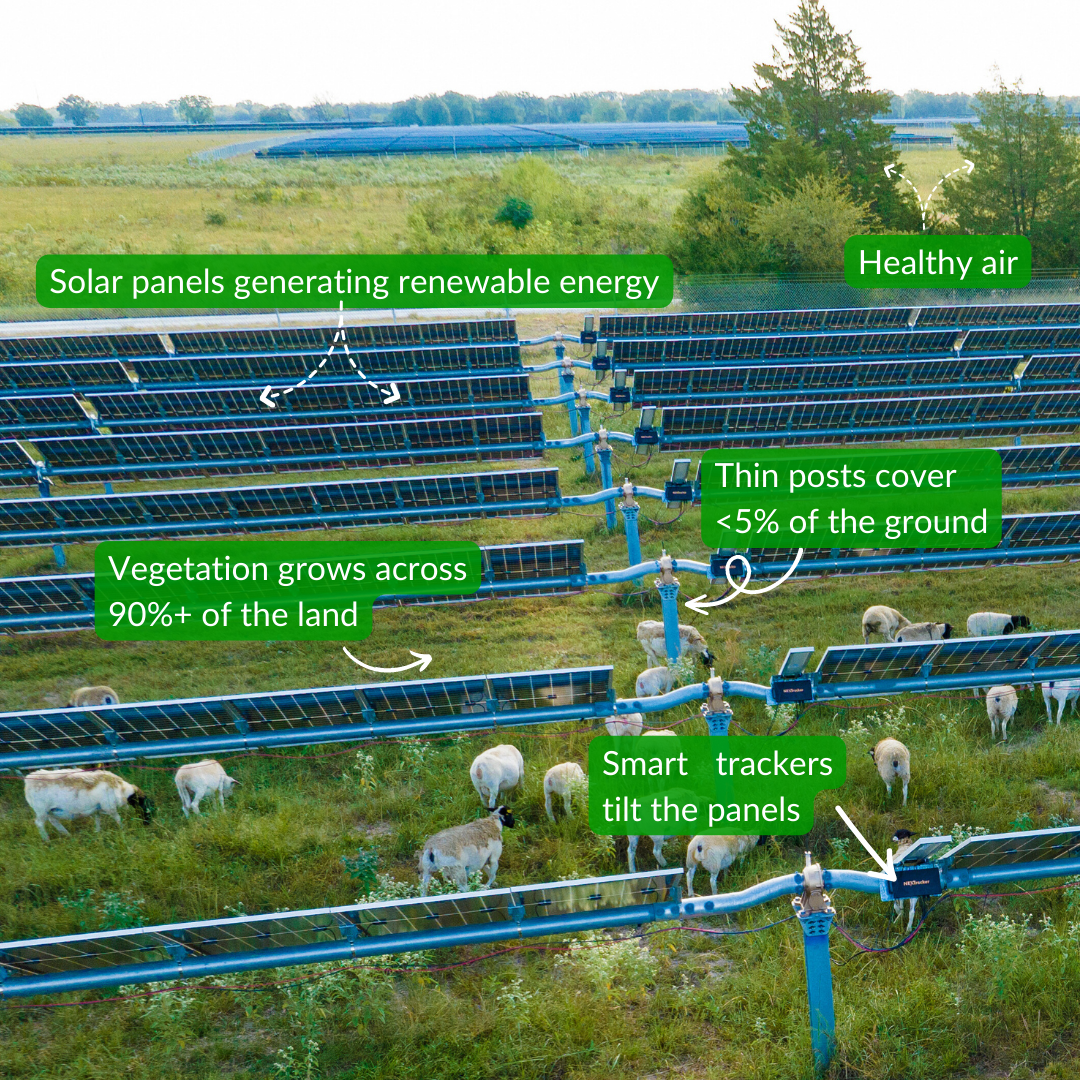
How solar farms work
Solar farms add energy to the local electric grid, just like other electric power plants. Rows of solar panels produce the electricity, which flows through the grid to power places like homes, businesses, schools and hospitals.
Solar panels are mounted on structures called racking. Racking sits on posts that raise the panels above the ground. The posts take up less than 5% of the land. With significant open space under the panels, in the rows and in buffer areas to plant site-specific grasses and other vegetation, we set a goal of increasing biodiversity in the first 5 years of operation. We also integrate agriculture where practical.
The racking is equipped with smart solar trackers that slowly and quietly rotate throughout the day, following the sun to maximize solar energy production. These smart trackers serve other important purposes, too: they help protect solar panels from hailstorms, high winds and buildup of snow on solar panels.
Our Responsible Solar approach
Lightsource bp has a deep commitment to delivering safe, clean and affordable energy, as well as maximizing the environmental sustainability and positive social impacts of each of our projects. We call this approach Responsible Solar. We are intentional with every detail, from the fencing we choose to the vegetation we plant. We want our Starr Solar farm to be a great project for the local community. In developing the project, we have implemented best practices for solar farm development, including the below:
Environment and aesthetics
- Designing setbacks from nearby property lines and public roads.
- Installing an agricultural game style fence as opposed to industry-standard chain link fencing.
- Planting vegetation under and around the solar panels, with a seed mix customized for the local area in order to increase biodiversity and improve soil health.
Upkeep and decommissioning
- Making sure appropriate drainage and traffic mitigation are provided.
- Budgeting for consistent maintenance and upkeep of the facility.
- Committing to reusing or recycling all solar panels.
- Preparing a decommissioning plan to ensure that the project will be removed at the end of its life.
Responsible Solar Stories
Find out more about our Responsible Solar approach in action.
Solar apprenticeships for Texas veterans
Helping Texas veterans get on-the-job training at our Elm Branch Solar project
Making a local impact
A solar farm is so much more than energy production. It can boost biodiversity on the land. It can provide new tax revenue to your community. It’s a new, year-round type of harvest for your neighbor farmers that helps them keep their land for future generations.
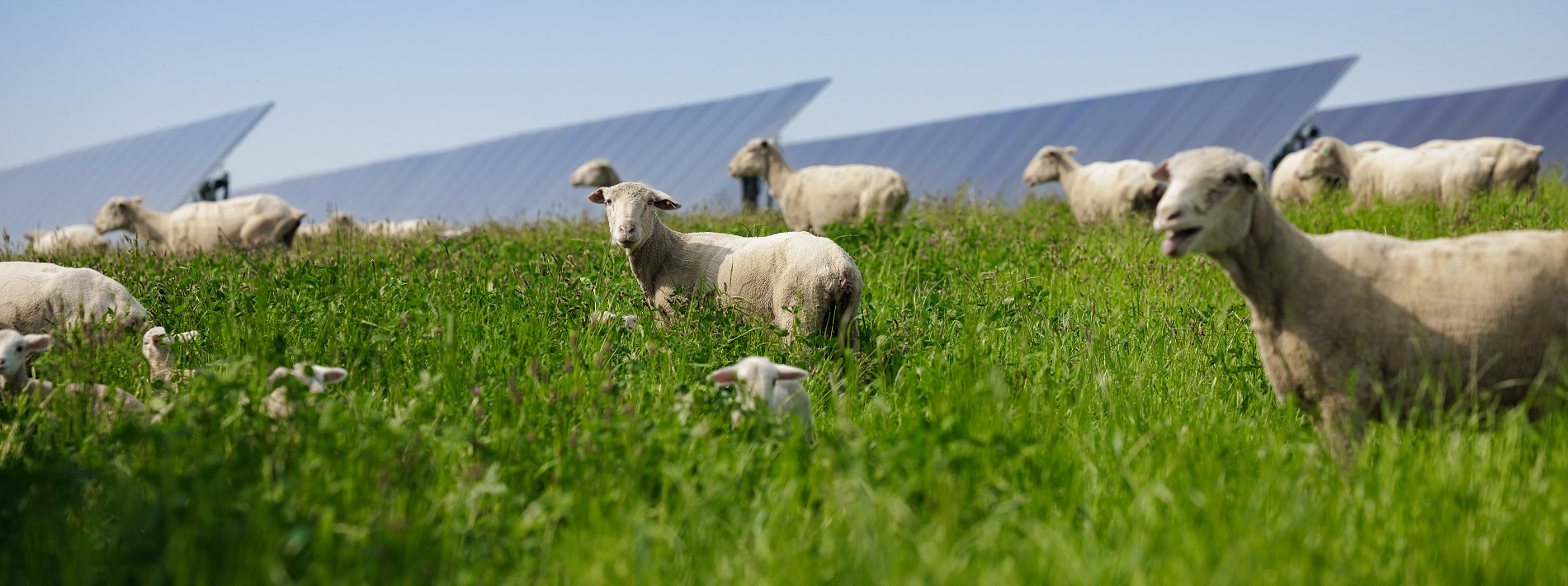
Long-term benefits
In addition to generating affordable, renewable energy for the Texas electrical grid, development of the land with home-grown solar energy has several additional long-term benefits, including:
- Rest and regeneration of the land during the project’s life, improving soil health and preserving it for future use.
- Healthy groundcover under and around the panels that boosts local biodiversity, creating a stable, long-term home for plants, pollinators, birds and other wildlife.
- Opportunity for integrated agriculture such as sheep grazing or bee keeping.
- Rural resilience through continued local ownership of the land.
- Energy security and independence from foreign sources of fuel.
Economic growth for the community
The Starr Solar project represents a $230 million capital investment into home-grown, affordable energy for Texas, using private funding. This opens many doors for economic growth, including:
- The project created 200 jobs during peak construction.
- Lightsource bp is committed to supporting philanthropic activities and charitable donations to local organizations.
Information and resources
We’ve put together a collection of resources for anyone who’d like to know more about solar farms.
Solar farm FAQs
We’ve put together a list of the most commonly asked questions, and their answers.
Solar energy basics
National Renewable Energy Lab (NREL)
Lightsource bp educational materials
Solar panel safety and recycling
Complaint Filing Procedure
Complaints can be submitted through the following means:
- US Community Relations email address: uscommunityrelations@lightsourcebp.com
- Lightsource bp office phone number: 1 (415) 523-0200
- US Mail: Starr Solar, 400 Montgomery Street, 8th Floor San Francisco, CA 94104
Individuals filing a complaint should include their name, contact information, date of complaint, description of complaint (including location, date, and time of incident, as applicable) and any other relevant details to aid in resolution.
Complaint Review Process
Our designated staff will contact the complainant within five (5) business days of receiving a complaint. During this call or email, we will confirm the issue, identify the relevant site, and establish the best way to stay in touch. We will also provide a specific timeframe for follow-up.
All complaints are logged in our stakeholder management platform to track progress and resolution time. A subject matter expert (SME) will work on finding a resolution and provide updates as needed.
We are committed to resolving complaints as quickly as possible and will provide regular updates. In some cases, unexpected delays may occur, or a complaint may be deemed unresolvable. If this happens, we will inform the complainant and explain the situation.


